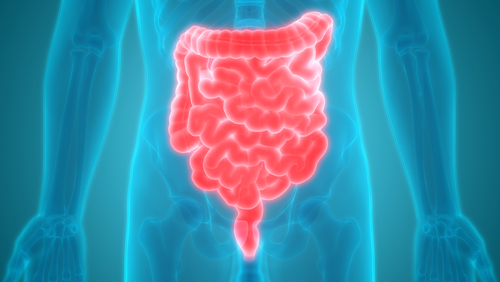Tweaking the types of bacteria living in the gut, or gut microbiota, can prevent bowel cancer in mice with inflammatory bowel disease (IBD), a new study has found.
By restricting the growth of specific harmful bacteria, intestinal inflammation was reduced, and with that, the incidence of tumors in mouse models of colitis-associated bowel cancer.
These proof-of-concept findings could open new ways of preventing cancer in people with IBD. Rather than using antibiotics that kill bacteria arbitrarily, finding strategies to precisely edit gut microbiota may offer effective alternatives.
The study, “Editing of the gut microbiota reduces carcinogenesis in mouse models of colitis-associated colorectal cancer,” was published in the Journal of Experimental Medicine.
People living with IBD — including Crohn’s disease or colitis — are at greater risk of developing bowel cancer, also known as colorectal cancer.
A recent study shows that for people with disease affecting all or much of the large bowel, about one person in every 100 might be expected to develop cancer after 10 years. This risk increases to five people after more than 20 years.
In addition to bowel cancer, prolonged IBD is associated with imbalances (dysbiosis) in the types of bacteria that line the gut, called the gut microbiome. In turn, those imbalances, particularly the proliferation of toxin-producing bacteria, also increase the likelihood of colorectal cancer.
“Our intestinal tract is teeming with microbes, many of which are beneficial and contribute to our overall health. Yet, under certain conditions, the normal function of these microbial communities can be disturbed. An overabundance of certain microbes is associated with increased risk for the development of diseases, including certain cancers,” the study’s senior author, Sebastian Winter, PhD, professor at UT Southwestern Medical Center, said in a press release.
Winter and his team figured that making calculated modifications in the metabolism and composition of gut microbiota could decrease the risk for tumor development during IBD.
The hypothesis built on a prior work where they demonstrated that precision editing of gut bacteria reduced inflammation in mice with colitis, while apparently leaving healthy animals untouched.
To test a similar strategy for preventing cancer, researchers used models of colitis-associated colorectal cancer (CAC) and gave these mice oral preparations of sodium tungstate — a heavy metal that inhibits molybdoenzymes — interfering with certain bacteria, specifically some harmful strains of Escherichia coli.
Most E. coli bacteria are harmless and protect the human gut from intestinal microbes such as salmonella, a common cause of food poisoning. But a strain of E. coli bacteria produces a toxin that causes damage to DNA and has been seen to cause colon cancer in animal models.
“We developed a simple approach — giving a water-soluble tungsten salt to mice genetically predisposed to develop inflammation — to change the way potentially harmful E. coli bacteria generate energy for growth. Restricting the growth of these bacteria decreased intestinal inflammation and reduced the incidence of tumors in two models of colorectal cancer,” Winter said.
As well as inhibiting toxin-producing E.coli, tungsten also curtailed the expansion of related bacteria belonging to the Enterobacteriaceae family.
But, Winter cautioned, “Tungsten is a heavy metal and should not be used by anyone due to its toxicity.
“As with our 2018 paper, this is a proof-of-concept study that will guide us in developing future drugs with similar activity and less toxicity.”
The study presents evidence that targeting gut microbiota can be sufficient to affect tumor formation “in a significant and meaningful way,” Winter said.
This is a shift in strategy compared to current treatments that either attempt to control inflammation during IBD flare-ups or use broad-spectrum antibiotics that kill both “good” and “bad” bacteria to reduce the risk of cancer, researchers noted.

